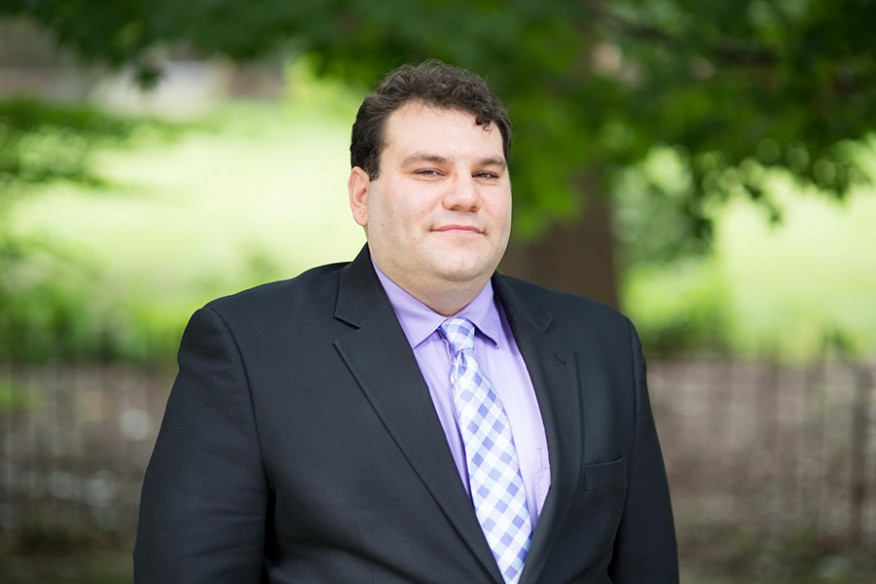-
Concentration:Social Policy and Evaluation / Children Youth and Families
-
Field Placement:Program Evaluation Group, U-M School of Social Work
-
Scholarship:Blavin MSW Scholarship Award
Young Anthony Abshire couldn’t help noticing: every time someone in the foster care system refused to help, their excuse was, “Our policy says...”
“Anything they did or didn’t do in direct service,” Anthony recalls, “they cited a policy. When I went for my own MSW, I wanted to create change. I thought I would be more effective working in policy than in direct service.”
At 17 Anthony left his foster family at the time and enlisted in the army, serving in Mannheim, Germany. After discharge, he went for a bachelor’s in social work at Portland (OR) State University, then spent a year training social workers and foster parents in something he knew well: trauma and how to transition foster youth into their homes. The next step, an MSW, turned out to be the easiest of all. “I applied to U-M and they accepted me!” he says with a grin. “That’s pretty much the gist of it. Then I looked through the concentrations. Social Policy and Evaluation was naturally what I wanted to do.”
“My experiences here have helped me grow professionally and personally,” Anthony says of the School of Social Work. “I wouldn’t be the same person without this program.” One stand-out experience came in the summer of 2019. Anthony spent nine weeks in Washington, D.C., in the office of Rep. James Langevin (D-RI). He worked on federal child welfare policy and helped to create a report to be presented to private agencies and to the U.S. Congress’s Domestic Policy Council. Rep. Langevin sits on the Congressional Caucus for Foster Youth, the House Armed Services Committee and the Committee on Homeland Security. “I was a foster kid and a veteran,” Anthony says. “It was a good fit.”
Anthony has been helped on his journey by our Blavin MSW Scholarship Award, given to students with lived experience in the foster care system. “The Blavin Award has helped me stay in school,” Anthony says. “It has helped with the bills and helped me get access to resources.” Among these would be travel to Washington and the ability to take care of himself there. “In a program like this, with so many foster youth, it’s great to have a scholarship that’s for us. We face barriers other students don’t. Everyone thinks a foster kid is a great success if they make it this far; people don’t understand the difficulties we face, even in graduate school. I don’t have the cultural capital and family privilege of a kid who grew up with his biological family.”
Looking ahead, Anthony wants to work in both policy and education, especially in health care or foster care policy. “I want to see youth included in policy,” he says. “We write policies as if they affect everyone the same. But we must tailor them with an understanding of how they affect traumatized youth.”
Anthony also has personal ambitions. “When I am settled I want to become a foster parent,” he says. “I want two kids, because a kid shouldn’t be alone; they should have someone who shares the perspective of their generation. I was never in a family with fewer than three kids. We could talk to one another, and we always knew there was someone there.”
